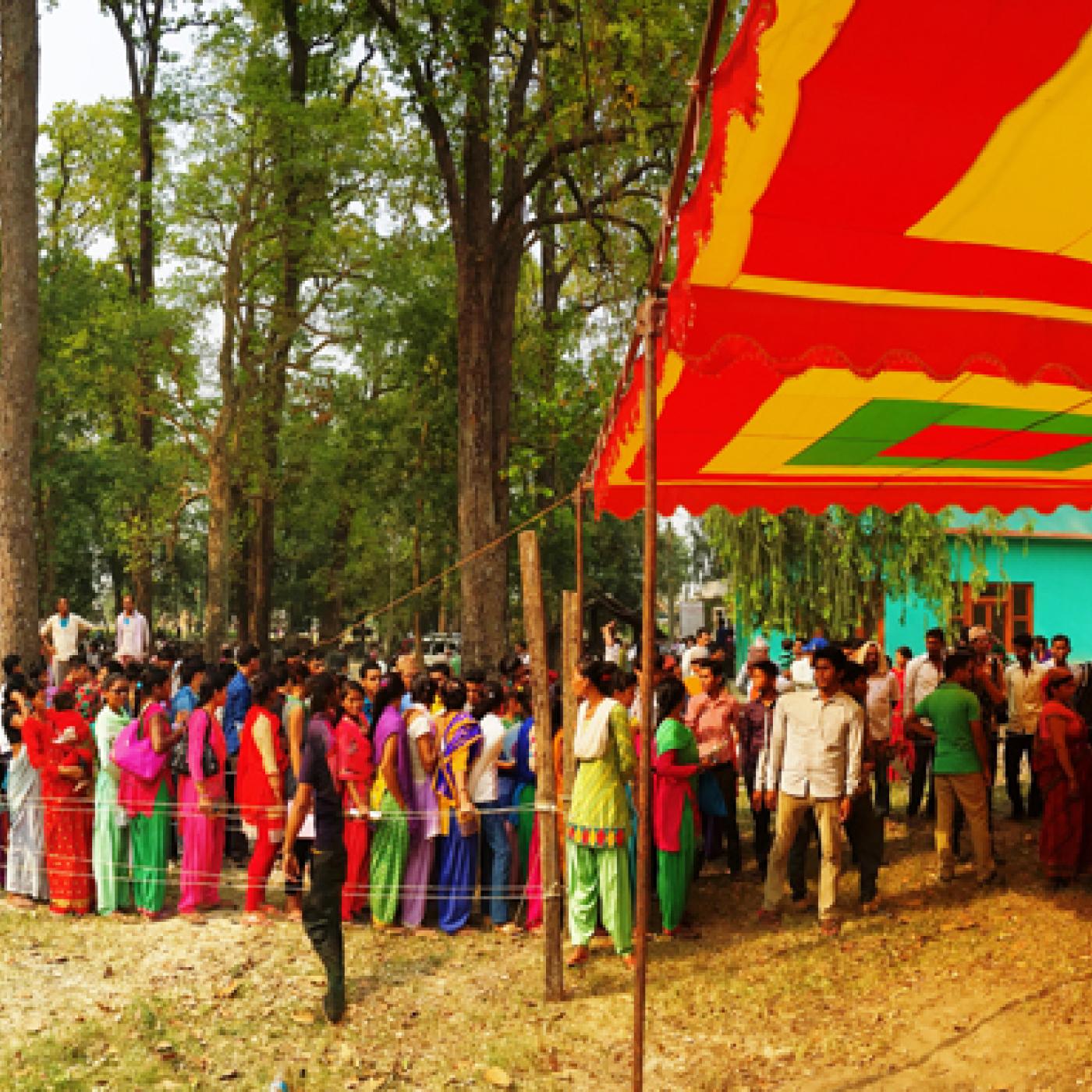Tools & Resources
Filter by
Type
Publication date
Language
Type
Publication date
Language
News & Updates
Feature
Photo Gallery: IFES 2016 Photography Contest Winner and Finalists
An image of a person with a disability in India on his way to vote with the assistance of his son was selected as the Grand Prize winner in the International Foundation for Electoral Systems’ (IFES) 2016 Photography Contest. A photo of eager citizens in queue to obtain their citizenship cards and enroll on the Election Commission of Nepal's voter register at a mobile camp in Kailali district, Nepal was selected as the IFES Choice winner of the Photography Contest.
Election FAQ
Elections in Burkina Faso: 2016 Municipal Elections
On May 22, Burkinabe voters will elect Municipal Councilors, who will in turn elect their Mayors and Deputy Mayors. In total, 19,624 seats will be contested in 9,299 electoral districts.
Publication
Brochure/Fact Sheet
Factsheet on Electoral Provisions in Nepal’s New Constitution
On September 20, 2015, Nepal’s Constituent Assembly approved a new constitution, transitioning Nepal to a Federal Democratic Republic divided into seven provinces. IFES has developed a factsheet to provide an overview of how the new constitution will affect Nepal’s electoral process, including explanations of the electoral systems to be used for different elected bodies and positions, provisions to ensure representation of women and other marginalized groups, and guidelines on the delimitation of electoral constituencies.
February 18, 2016
News & Updates
Feature
A Look at Burkina Faso’s November General Elections
On November 29, citizens of Burkina Faso headed to the polls to elect their next President and Deputies who will represent them in the National Assembly.
Election FAQ
Elections in Burkina Faso: November 29 General Elections
On November 29, citizens of Burkina Faso will head to the polls to elect their next President and Deputies who will represent them in the National Assembly. These elections were originally scheduled for October 11, 2015, but were postponed until November 29 due to a coup d’état on September 17.
News & Updates
Feature
Promoting Gender Inclusion with Nepal’s Election Commission
In the last decade, Nepal has made significant progress in promoting gender equality and women’s political participation, including adopting women’s rights-focused international and national instruments as well as a gender quota in the 2007 interim Constitution.
Publication
Brochure/Fact Sheet
Burkina Faso: Partnership for Participation and Poise in Epic Polls
Burkina Faso’s political landscape changed dramatically on October 31, 2014, when President Blaise Compaoré stepped down after nearly three decades in power and fled the country. The 2015 elections offer an unprecedented opportunity for deepening citizen involvement in electoral and political processes, increasing citizens’ confidence in the integrity of voting processes and systems, and enabling young people to channel their new-found activism into peaceful political participation. The elections also carry considerable risk. Unless they are viewed as credible and their outcomes accepted as a legitimate expression of popular choice, alienated citizens, in particular energized young people, could be compelled to reject political processes they deem illegitimate or unfair.
January 28, 2015
News & Updates
Feature
Registering Marginalized Populations to Vote in Nepal
As Nepal undergoes critical electoral and governance changes, IFES Nepal is working with local partners to register Nepalis – including Dalits, youth, Muslim women, freed Kamaiya (those subjected to forced labor) and other historically marginalized groups – to vote. This is part of IFES Nepal’s efforts to ensure that all Nepalis are able to participate actively in Nepal’s evolving political process.
News & Updates
Feature
Improving Access to Citizenship Certificates
As a primary legal document in Nepal, the citizenship certificate is compulsory for banking; accessing formal education and employment; registering on the voter’s roll; and obtaining a variety of benefits, including social security and government allowances for people with disabilities, victims of armed conflict and internally displaced persons. Yet despite its importance, there are significant barriers – including lack of knowledge or supporting documents and issues related to gender, caste and extreme poverty – that hinder access to citizenship certificates, especially for those from Nepal’s more marginalized groups.
Publication
Book
Gender Equality & Election Management Bodies: A Best Practices Guide
The full participation of women and men in a country's political and decision-making processes as voters, candidates, elected officials and electoral management body (EMB) staff is crucial. Yet, despite a set of robust international instruments and many positive developments in recent years, women represent only 21.7 percent of world's parliamentarians and in many countries they continue to be marginalized and underrepresented in political and electoral processes. Clearly, major steps still need to be taken before true gender equality is achieved in this arena.
September 23, 2014






